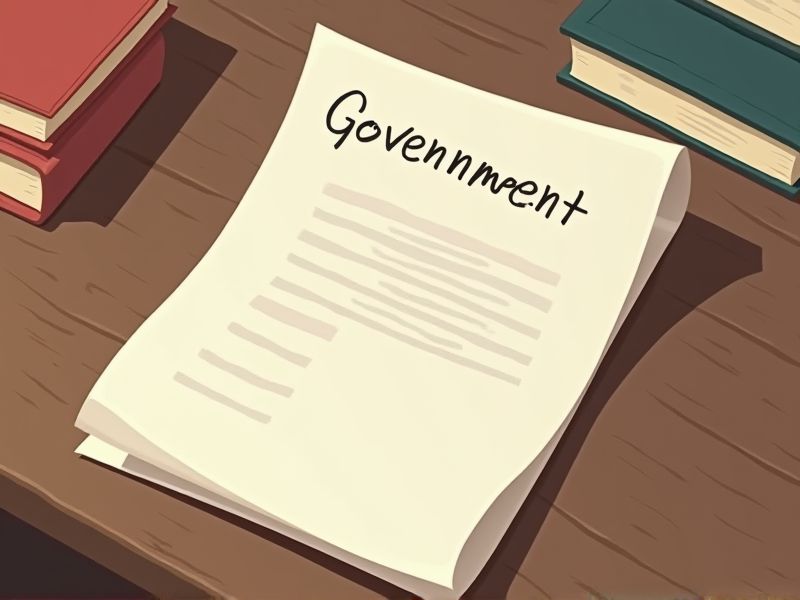
Government librarians operate within a unique framework that requires adherence to specific regulations and protocols. Certifications equip them with the knowledge to navigate complex information systems and ensure compliance with governmental standards. Professional credentials can verify their proficiency in digital technologies and data management, which are critical in optimizing library operations within a governmental context. Important certifications you may need for a government librarian role include the following.
American Library Association (ALA) Accredited Master of Library Science (MLS) Credential
Government librarian positions frequently require an ALA-accredited Master of Library Science (MLS) credential to ensure standardized professional competence and knowledge. This credential signifies that the holder has undergone rigorous training in information organization, retrieval, and management, aligning with the complexity of government documentation needs. Employers within government institutions prioritize candidates with accredited backgrounds to maintain a high level of information service and resource management. Due to its recognized emphasis on ethical standards and advocacy for diverse communities, the credential supports government librarians' capacity to serve diverse populations effectively.
Certified Public Librarian (CPL)
The demand for a Certified Public Librarian (CPL) arises due to the advanced competencies required to manage and organize public information resources effectively. CPLs ensure government libraries adhere to industry standards and best practices, which enhances the efficiency and accuracy of information dissemination. Government librarians with CPL certification possess specialized skills in cataloging, database management, and information technology, crucial for navigating the complexities of modern information systems. Through ongoing professional development mandated by the CPL certification, these librarians stay current with evolving trends and technologies, ensuring the library remains a relevant and valuable public resource.
Certified Government Documents Specialist (CGDS)
The growing complexity and specificity of governmental documentation increases the need for a Certified Government Documents Specialist (CGDS) to ensure proper organization and retrieval. CGDS certification enhances the librarian's ability to manage and interpret official documents, minimizing errors and improving public access. Government librarians equipped with CGDS skills contribute to transparency and efficiency within government operations through precise document handling. As a result, they play a crucial role in maintaining the integrity and usability of public records.
Certified Records Manager (CRM)
Certified Records Manager (CRM) designation enhances a government librarian's ability to efficiently manage and preserve records in compliance with regulatory standards. The certification ensures librarians possess the expertise to handle the complex nature of governmental information, reducing the risk of data mismanagement. Agencies benefit from a CRM's capacity to implement systematic records management processes, ensuring transparency and accountability. This professional qualification also equips librarians to address security concerns related to sensitive governmental data.
Certified Archivist (CA)
A Certified Archivist possesses specialized skills in preserving and organizing historical documents, which supports government librarians in managing extensive archival collections. This expertise ensures compliance with legal and institutional standards for record-keeping and enhances the integrity and accessibility of government records. The knowledge in digital preservation and data management helps tackle the challenges of modern information storage, a crucial aspect for government institutions dealing with large volumes of data. Certified Archivists bring a level of professional credibility required for acquiring grants and funding necessary for archival projects within government libraries.
Digital Archives Specialist (DAS)
Digital Archives Specialists, by leveraging their expertise in managing digital records, enable government librarians to ensure efficient organization and retrieval of digital content. With the increasing shift from physical to digital media within government operations, a DAS is essential in preserving electronic documents and maintaining compliance with digital preservation standards. The specialist's skills in metadata application and digital asset management enhance the discoverability and usability of vast archives, supporting transparency and public access to government information. Their role mitigates the risks associated with data loss and obsolescence, allowing continuous access to governmental resources.
Information Governance Professional (IGP)
Government librarians deal with vast amounts of information requiring organization, security, and compliance, where an Information Governance Professional ensures adherence to regulations. IGPs provide strategic oversight to manage data efficiently and minimize risks associated with data breaches. An IGP helps streamline processes, enhancing accessibility and usability of critical information for decision-makers. Government entities face evolving legal challenges, and an IGP ensures policies are current and legally compliant.
Certified Information Professional (CIP)
Government librarians must handle complex and sensitive information efficiently, and the CIP certification ensures they possess the skills to manage such content effectively. Understanding digital asset management, a key component of CIP, enables librarians to streamline information retrieval processes, enhancing public service delivery. With the increasing emphasis on data privacy and security, the CIP credential equips librarians with the necessary knowledge to safeguard governmental data. The growing digital transformation in government sectors calls for specialized expertise, making CIP an essential qualification for adapting to modern technological demands.
Project Management Professional (PMP)
Government librarians with PMP certification can streamline project processes, enhancing efficiency in managing library resources and programs. The consistent success in project execution often results in better allocation of funds, improving budget management. PMP training equips librarians with risk management skills, reducing the chances of project failures or setbacks. Enhanced stakeholder communication, a key component of PMP, ensures library initiatives receive necessary support and understanding from government authorities and the public.
Certified Data Management Professional (CDMP)
The Certified Data Management Professional (CDMP) credential equips government librarians with advanced data management skills, ensuring efficient handling of vast information resources. Improved data organization and governance lead to enhanced service delivery and better information accessibility for citizens. With data integrity being vital in governmental operations, a CDMP-certified librarian can effectively safeguard sensitive information. Integrating data-driven insights allows for informed decision-making and streamlined library operations within governmental frameworks.
Summary
By gaining certifications, you enhance your ability to utilize advanced library management techniques. The implementation of these skills likely leads to increased efficiency and improved resource accessibility for library patrons. The librarian's certified expertise can foster better community engagement and foster trust in library services. This results in a more knowledgeable and capable library staff, elevating the overall quality of information services provided to the public.
